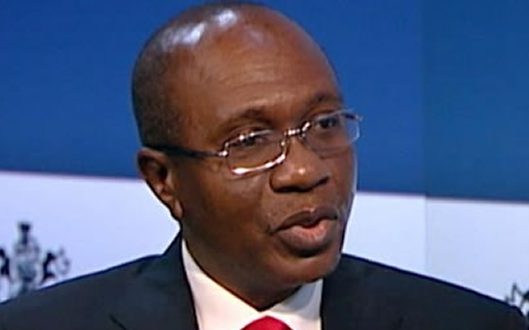Indications emerged that the Central Bank of Nigeria (CBN) recently issued licences to five new banks to carry out financial services in the country.
According to sources, one of the new banks may commence operations this week.
However, further findings revealed that most of the newly licensed lenders are planning to kick off banking operations in the country before August 2019.
According to a report by Business Day, one of the new banks, “Globus” is said to be spearheaded by Elias Igbinakenzua, a former Executive Director at a tier one bank.
Recall that in late 2016, Mr Elias Igbinakenzua resigned from Access Bank and in 2017, he became the CEO of First Aluminium Nigeria Plc.
“The Bank (Globus), whose head office is on Sanusi Fafunwa, Victoria Island, may open by May 2nd,” one of the sources quoted by Business Day said.
The second bank would go by the name “Titan” and is said to have secured the services of a former Heritage bank executive director.
Another owner of one of the new banks is said to be Indian – the former owner of Chi Limited who recently sold a majority stake to Coca Cola – and the initial strategy would be to target large Indian and Lebanese clients with investments in Nigeria especially in the manufacturing and other sectors, sources said.
The other banks remain largely anonymous but would be a mix of micro-finance, Merchant and/or deposit money banks.
It was reported that the apex bank is being driven by the need to attract new investments into the sector and serve the country’s over 50 million unbanked and under-banked people, even as current banks have struggled to grow loan books since an economic slump in 2016 caused bad loans to surge.
CBN spokesperson, Mr Isaac Okorafor, did not respond to calls seeking more clarifications.
Also, three bank CEOs declined to comment, as the CBN is yet to go public on the matter.
According to findings, most of the capital needed to set up the banks were sourced locally in Nigeria.
The minimum capital requirement for a Regional bank is N10 billion, while for National banks its N25 billion and international Banks N50 billion, according to the Banks and Other Financial Institutions Act (BOFIA).
The capital requirement of microfinance banks, which was amended by the CBN in 2018, is as follows: For a Unit Microfinance bank, the requirement is N200 million, while its N1 billion and N5 billion for a State and National Microfinance bank respectively.
For a merchant bank, the minimum paid-up share capital is currently N15 billion.
Attempting to place a finger on the motivation for licensing five new banks almost out of the blue, one of the sources said, “The CBN will not want to preside over an industry that is shrinking.”
Another said “Nigeria is under-banked and investors are responding, if the CBN wants to grow credit, by N1 trillion, none of the old banks can take it. Banks available are already at capacity, in one way or another.”
The CBN has been somewhat desperate for banks to increase lending to critical sectors but an economy fraught with risks has tamed lending appetite.
Nigerian banks were unable to grow their loan books in the past year, a signal that the macroeconomic environment remains weak and non-supportive for growth.
The 12 largest lenders quoted on the floor of the Nigerian Stock Exchange (NSE) saw combined loans and advances dip by 6.37 percent to N12.34 trillion in December 2018, from N13.18 trillion a year earlier. This compares with a 25.14 percent increase between the 2013 and 2014 financial year.
The CBN is worried about the trend, Governor Godwin Emefiele indicated in the aftermath of the monetary policy committee last March.
To encourage lending to the real sector, the CBN promised to allow banks draw down from their regulatory cash buffers sitting with the apex bank, if the banks gave loans to manufacturers and players in the agriculture sector at single-digit interest rates.
The response has been largely underwhelming, with banks preferring instead to stash cash in double-digit yielding government debt where they take considerably less risk. Even the CBN’s surprise interest rate cut to 13.5 percent after keeping it at 14 percent for over two years, was not able to move the needle on lending.
The banks argue that to increase lending the CBN should instead reduce the Cash Reserve Ratio (CRR) to free up idle funds. The effective CRR in the sector is as high as 40 percent.
Licensing five new banks can pass for the latest strategy by the CBN to boost bank lending, according to a source.
“However, if the problems that hinder the current banks from growing their loan books persist, then even the new ones will struggle,” the third source said.

